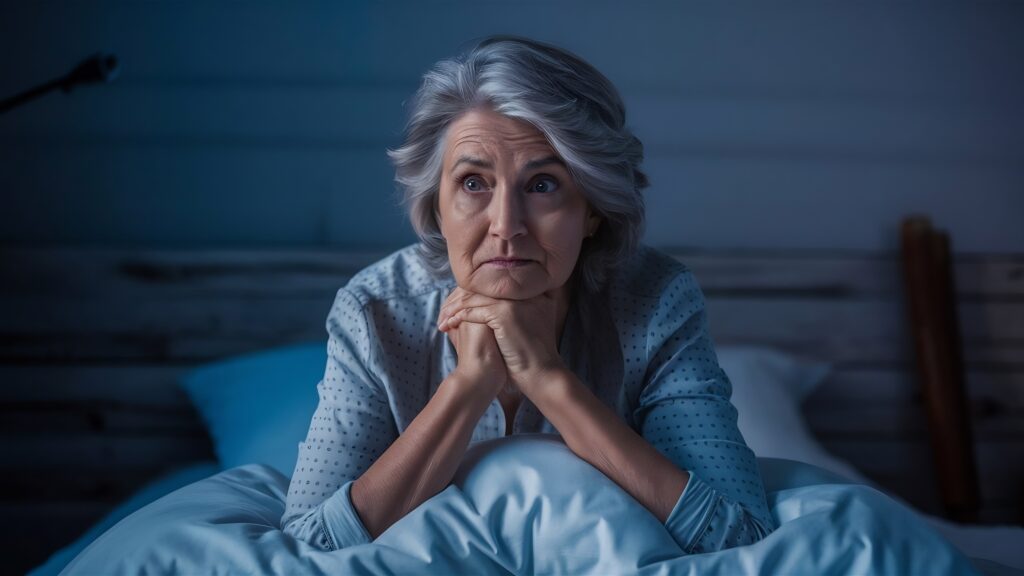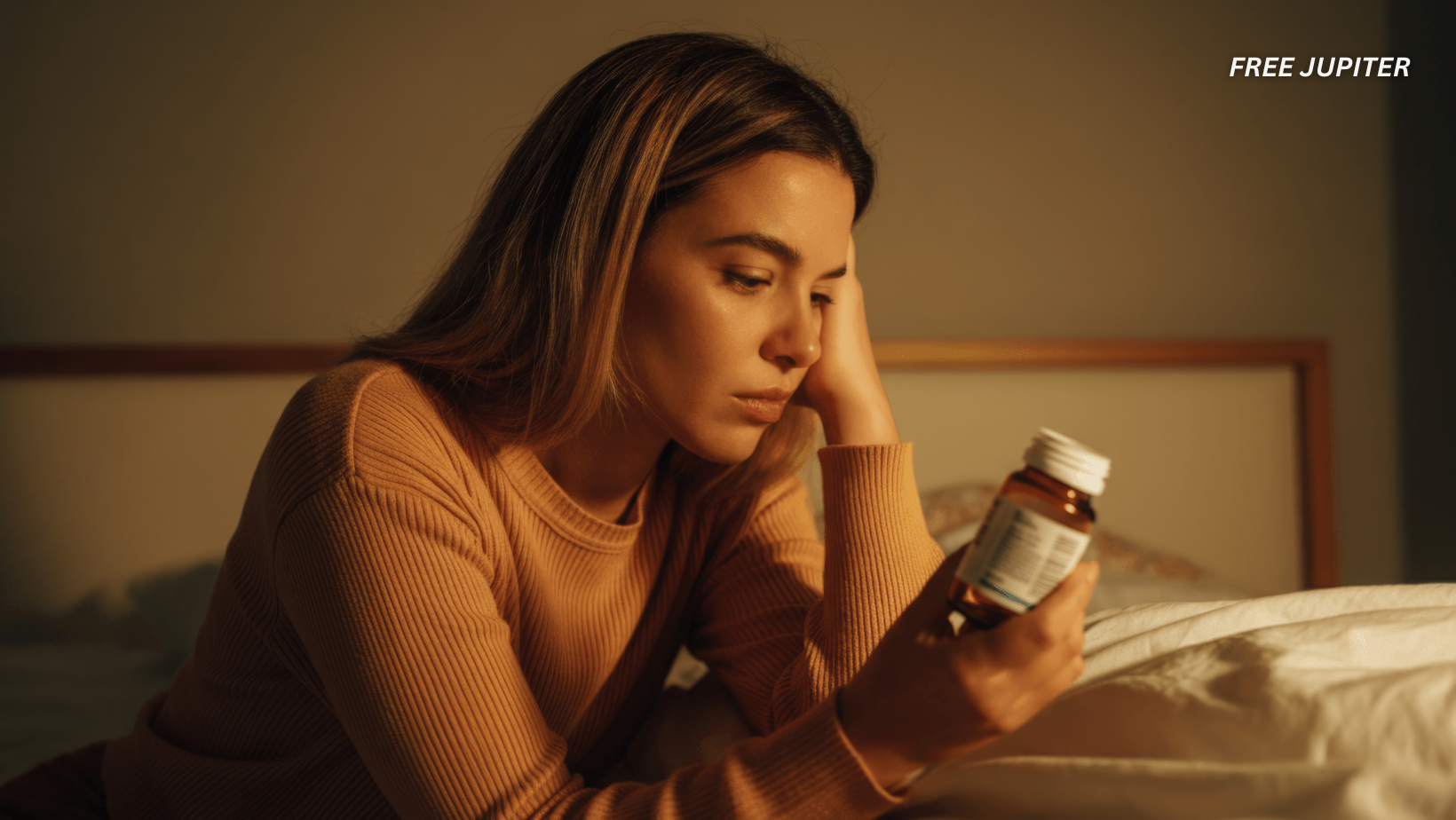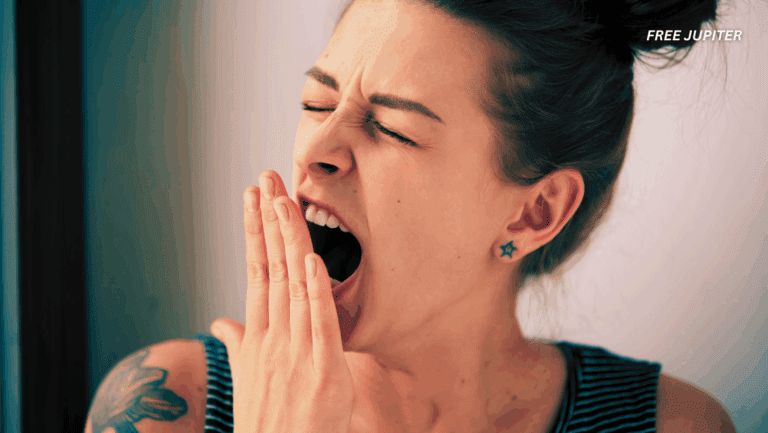Trouble sleeping might seem like a harmless inconvenience, but new research suggests it can quietly erode your ability to live independently. A team of scientists has discovered that persistent insomnia, as well as the frequent use of sleep medications, is closely tied to developing disabilities. This means that something as routine as tossing and turning at night may carry long-term consequences for your body’s strength, coordination, and daily function.
A new study from researchers at Penn State University and Taipei Medical University has found a troubling connection between insomnia, sleep medication use, and long-term physical disability in older adults. Published in the peer-reviewed journal Sleep, the research warns that common sleep struggles could quietly accelerate aging by reducing mobility and independence over time.
Using data from more than 6,700 Americans aged 65 and older, the study paints a clear picture: the more frequently someone reported trouble sleeping or used sleep medications, the more likely they were to develop disabilities in basic daily tasks like dressing, bathing, or walking. These declines were not minor. In fact, each year of disrupted sleep or sleep-aid reliance translated into significantly higher disability scores.
Orfeu Buxton, co-author of the study and a professor of biobehavioral health at Penn State, described the findings in stark terms. “As older people used more sleep medication or experienced more insomnia symptoms, they moved more rapidly towards greater disability,” he said. “This isn’t about one bad night of sleep, it’s about a pattern that has long-term consequences.”
A Five-Year Look Into Aging and Sleep
The research team analyzed five years of data from the National Health and Aging Trends Study (NHATS), a large, ongoing project that follows the health of older Americans. Participants self-reported their sleep difficulties and medication usage annually. Researchers then measured how those factors related to changes in their ability to carry out everyday activities.
Lead author Tuo-Yu “Tim” Chen of Taipei Medical University noted the strength of the dataset. “This is one of the few studies to track both insomnia symptoms and medication use over several years,” he said. “It helps us see the bigger picture of how sleep patterns contribute to aging and functional decline.”
The study found that each additional point on a scale measuring insomnia symptoms, such as trouble falling asleep, staying asleep, or waking too early, was linked with a roughly 20% increase in disability risk the following year. Sleep medication use showed a similar pattern, even when controlling for other health conditions, lifestyle habits, and demographic factors.

A Double-Edged Sword: The Risk of Sleep Medications
The findings raise concerns about the widespread use of sleep medications among older adults. While these drugs may offer short-term relief from restless nights, they come with serious risks. Many sedatives, including benzodiazepines and certain over-the-counter aids, can cause dizziness, delayed reaction time, confusion, and impaired balance.
These side effects are particularly dangerous for seniors, who are already at elevated risk for falls and injuries. Once a fall occurs, recovery is often difficult and costly, further accelerating the loss of independence. In the context of the study, sleep aids were not neutral; they were part of the problem.
Buxton cautioned against quick fixes. “Medications may seem like the easiest solution, but they carry risks that patients and doctors need to weigh carefully,” he said. “We have better, safer tools available.”
Read More: Insomnia Isn’t Just About Sleep, Your Personality Plays a Huge Role
The Case for Cognitive Behavioral Therapy
One such tool is Cognitive Behavioral Therapy for Insomnia (CBT-I), a structured form of talk therapy that helps people change unhelpful thoughts and behaviors around sleep. CBT-I has been proven effective in multiple trials and is recommended by the American College of Physicians as the first-line treatment for chronic insomnia.
Despite this, access remains limited. CBT-I requires trained clinicians, and insurance coverage can be inconsistent. Many older adults still turn to pills because they’re easier to obtain and often mistakenly perceived as safer.
Soomi Lee, another co-author and an associate professor of human development and family studies at Penn State, stressed the importance of clinician engagement. “Any older adult who experiences insomnia or uses sleep medication needs to talk to their physician about sleep,” she said. “The goal is to improve sleep quality without compromising long-term health.”
A Call to Rethink Sleep Medications
The study’s authors emphasize that poor sleep is not just an inconvenience. It is a medical issue with real consequences for quality of life, especially as people age. More than half of adults over 65 report some form of sleep disturbance, yet it’s often brushed off as a normal part of aging. This study pushes back on that assumption.
“If we take sleep seriously as a health issue,” Buxton explained, “we can slow down or even prevent some of the disability that seems inevitable with age.”
Sleep affects brain function, hormone regulation, mood, immune response, and physical coordination. Disrupted sleep can worsen existing conditions like arthritis, diabetes, and depression, creating a cycle that becomes harder to break the longer it continues.
The researchers hope their findings encourage both the medical community and the public to approach sleep with the same urgency as diet, exercise, and medication management. Interventions aimed at improving sleep could have a measurable impact on reducing healthcare costs, assisted living admissions, and caregiver strain.
Read More: Sleep Expert Identifies Six Sleep Patterns That May Indicate Underlying Health Conditions
What Older Adults Can Do Right Now
While long-term solutions require systemic change, there are immediate steps older adults can take:
- Track sleep patterns: Keep a sleep diary or use a wearable device to understand your habits.
- Limit screen time before bed: Blue light from phones and TVs can interfere with melatonin production.
- Avoid caffeine and alcohol late in the day: Both disrupt normal sleep cycles.
- Establish a routine: Going to bed and waking up at the same time helps train your body’s internal clock.
- Talk to your doctor: If you’re taking sleep aids regularly, ask about safer alternatives.
Ultimately, the study is a wake-up call, literally and figuratively. A good night’s rest does more than just boost energy levels. It may hold the key to aging with independence, dignity, and less pain.
Featured image: Freepik.
Friendly Note: FreeJupiter.com shares general information for curious minds. Please fact-check all claims and double-check health info with a qualified professional. 🌱










